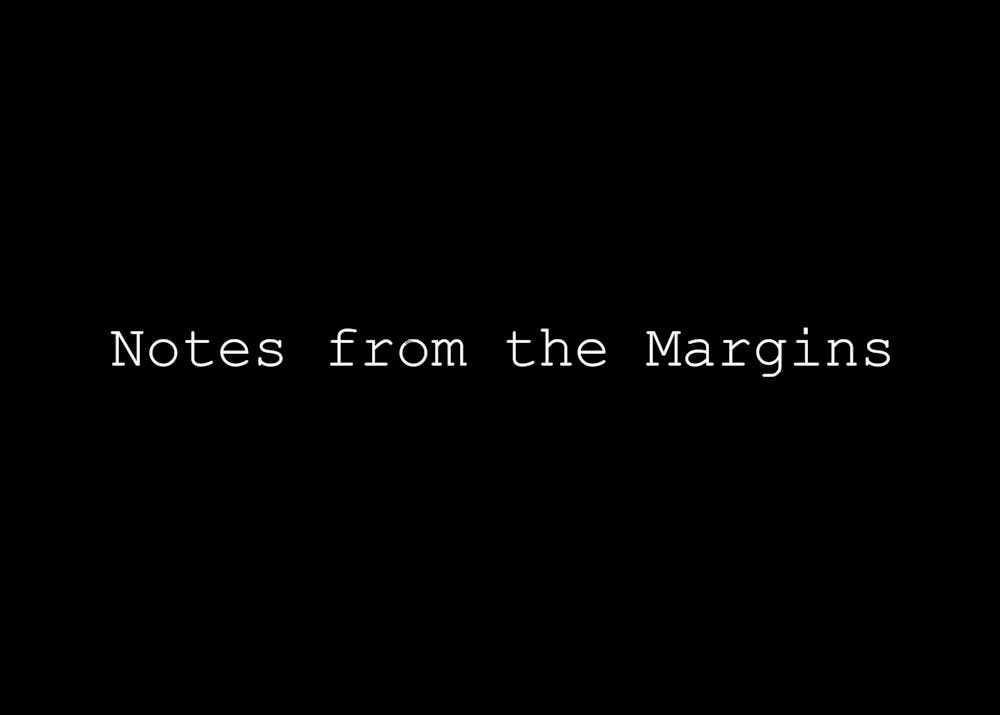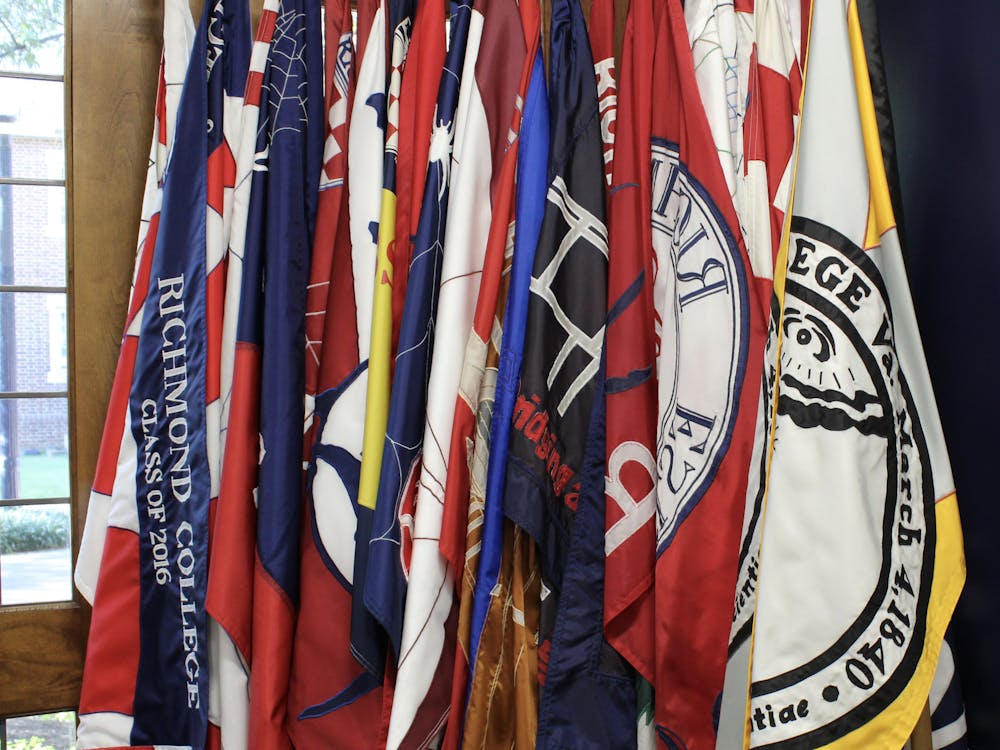Editor's Note: The views and opinions expressed in this article do not reflect those of The Collegian.
My dear University of Richmond campus, I wish I could say that I love you unconditionally. I wish I could say you offer me a sense of safety and prosperity, but that would be a lie. I wish that you were a sanctuary for those that look like me, but alas, since the beginning, we have only been valued as property and false diversity. I wish that the administration took our concerns seriously, and that white students consistently stood by our side. I wish we could stand together and make progressive strides.
But unfortunately, that could not be farther from the truth. I chose the University of Richmond as my first choice during the stressful college application process for its beautiful campus and promise of a new beginning. However, it is clear that my expectations were too high. I had too much faith in this establishment. Rather than being able to freely explore my interests and reinvent myself in a safe space, I was met with the same anti-Black racism that I knew all too well, which unsurprisingly came from the students of color here as well. I came from a New York City private school where I shared classes with the children of Fox News reporters and famous Wall Street businessmen; however, the atmosphere of this school is somehow more toxic.
I go to a university where most white students only think of minority groups as stereotypes and inconveniences. Where they not only ignore us but view us as a burden. Where they are unwilling to not only stand up for us but even do simple tasks like making space for us on the sidewalks as well. Where they laugh in the faces of dining hall staff after dropping plates of food and walking off. Where they spew hatred both in and out of the classroom. Where they infringe upon the space of those that do not look like them. Where they do not acknowledge the blood, sweat and tears of the Indigenous and enslaved community members that were the stewards of this land long before them. Where they fail to acknowledge the privileges that their skin color and generational wealth have offered them at our expense.
Rather than act as a safe space for learning and growth, this school is a microcosm of the larger world around us where white supremacy reigns supreme. White students are allowed to socially exclude, physically assault and make a mockery of those around them constantly and without consequence.
In my Introduction to Costume class, I was taught that costumes and clothing are meant to communicate a story. They are intended to be harmless physical representations of characters or objects that demonstrate the creativity and wit of the costume technician. However, the outfits that certain students dawned on Halloween were nothing of the sort. Rather than representing a niche art form, they perpetuated years of hatred against marginalized communities and reduced our identities to offensive stereotypes. As a person that greatly values self-expression, I know that this was not a form of creativity but rather bigotry in action.
Students of color are consistently expected to “be the bigger person” and ignore our victimization to appease and maintain the status quo of white comfort. We are expected to police our emotions and adhere to racist respectability politics in the face of those that fail to acknowledge our humanity. Minstrelsy and the diminishing of vibrant cultural backgrounds should always be deemed as unacceptable and punished, which is why holding a space for students of color to air their grievances is the bare minimum.
Toni Morrison once said, “the function, the very serious function of racism is distraction. It keeps you from doing your work. It keeps you explaining, over and over again, your reason for being." If racism acts as a traumatic source of physical and psychological torment, how is it fair for our teachers to expect us to complete our work consistently and as normal while our humanity is always under attack?
Our racial trauma should not be normalized and complacency should not be a choice for students. Not actively being racist is not enough. During times like these, we need intentional antiracism from students, faculty and the administration. Many believe that performative allyship, minimal awareness about social issues and surface-level "woke" views are enough, but I push you to ask yourself: How do you actively fight for the liberation of others in your daily life? Throwing money at different issues and causes in order to sweep them under the rug is not nearly enough. Have you taken any action to help minority groups since the summer of 2020, when most of the white people I know posted meaningless black screens and cosplayed being activists? Do you remember the names of not only George Floyd, Breonna Taylor and Elijah McClain, but those of your classmates of color as well? Black and brown lives matter, and we should not have to show physical scars or certificates of death as proof of our marginalization and suffering. It has been demonstrated time and time again that tasteless “jokes” and offensive comments lay the foundation for more overt instances of hatred and discrimination, which is why we must take the incidents that occurred during Halloweekend incredibly seriously.
Slavery was abolished in 1865 in the state of Virginia; however, Black and brown students are still nowhere near being free. We still live with the constant fear of being humiliated and hurt by our white peers, and realistically, not much has changed since the Antebellum era. As a school that prides itself on offering a top-tier progressive liberal arts education, we must do more to support the marginalized communities on campus. This school and all its members share the responsibility to protect and offer adequate resources to students of color, those that are neurodivergent, people with disabilities and those that stem from low-income backgrounds, among others. Only protecting the interests of wealthy white men and financial donors is not enough. We cannot be complacent in the face of racist and fascist ideologies and white guilt does not solve systemic issues. Showing up to this meeting is the bare minimum and should only be a first step in supporting communities of color on this campus. I implore you to examine your own subconscious biases and stand with us not only during moments of strife but of triumph as well.
Racism is an embarrassing facet of our bloody history that will be here for generations to come. Dismantling it is not simple nor fast work; however, we must continue to work diligently to minimize the harm done to our most vulnerable communities. We must be able to lean on each other during times of hardship and celebrate our differences. Therefore, I call on every member of this community to acknowledge the privileges that we all hold and use our voices for good. As the next generation of doctors, lawyers, writers and creatives, we all have the power to build a better future where every perspective and culture is valued. I hope that by the time I am an alum, systemic change will be enacted within the university and that the forgotten 40% will be valued for more than optics and diversity quotas. As a person of color at this university, I deserve the same rights and privileges as my white peers, and I call on you to join our fight because we will no longer be ignored. Indifference and ignorance is not an appropriate response to instances of discrimination and silence is no longer an option.
Having a few friends of color does not suffice. Smiling when you pass by a person of color does not suffice. Simply partaking in this protest does not suffice. And anything besides addressing the deep-rooted systemic issues at play at this university is not enough and never will be. The students of color here intend to make long-lasting change moving forward and we will no longer suffer in silence.
Enjoy what you're reading?
Signup for our newsletter
Contact notes from the margins editor Jaize Francis at jaize.francis@richmond.edu.
Support independent student media
You can make a tax-deductible donation by clicking the button below, which takes you to our secure PayPal account. The page is set up to receive contributions in whatever amount you designate. We look forward to using the money we raise to further our mission of providing honest and accurate information to students, faculty, staff, alumni and others in the general public.
Donate Now


